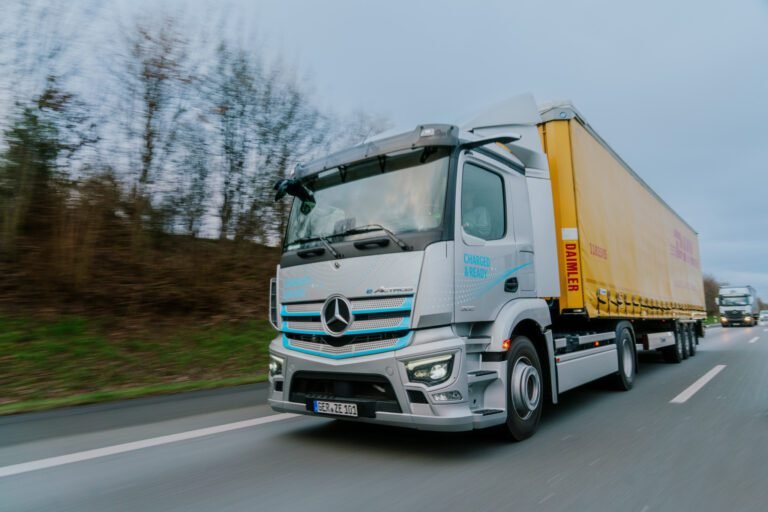The shortage of truck drivers in Europe will be in the spotlight this year with the European Commission recognizing the Year of Skills, officially launched during Europe Day on 9 May.
According to IRU reports, the continent’s current shortage of 600,000 bus and truck drivers will expand to nearly 2 million employees by 2026 if current trends are not addressed.
“The EU needs to promote reskilling and upskilling to enhance the competitiveness of companies and achieve digital and green transitions,” said Raluca Marian, Director of IRU – Advocacy for the European Union, in a press release.
“As suggested by the European Union, special emphasis should be placed on engaging more people, especially women and young people, in the labor market.”
One focus area is to attract workers from outside the EU, and the IRU is calling for a framework to attract, train and exchange third country driving licences.
In other global trucking news:
Iveco Group secures control of joint venture – Iveco Group is securing full ownership of its joint venture with Nikola, which has been in place since 2019, for US$35 million and 20.6 million Nikola shares. It will also retain access to the jointly developed vehicle control software for trucks, while Nikola will be able to license Iveco S-Way technology in North America.
DHL Freight on electric test – DHL Freight tested the Mercedes-Benz eActros 300 tractor, which transports 12 tons of production materials between the Hagen terminal and the Mercedes-Benz plant in Kassel, Germany, covering 350 kilometers per day. The trucks are equipped with three sets of batteries, each with a capacity of 112 kWh, supporting a range of up to 220 kilometers per charge. The test results will be used to plan CO2-free deliveries to the plant, which is recognized as a global center of competence in electric drive systems and conventional commercial vehicle axles.
Searching for Global Safety Standards – Together for Safer Roads has launched the Global Trucking Fleet Safety Standards Initiative with the goal of developing a set of combined fleet trucking safety standards for critical safety tools and technologies such as telematics, pedestrian detection systems, automatic braking, and airbags. Side airbags, side mirrors, and seat belts. “We know from fleet trucking experts that there are no universally shared industry standards for these safety tools,” said Peter Goldwasser, CEO. “Our goal is to change that.”





